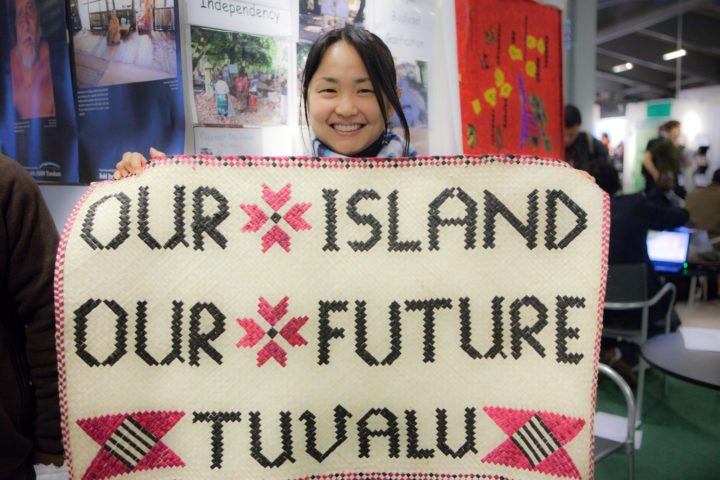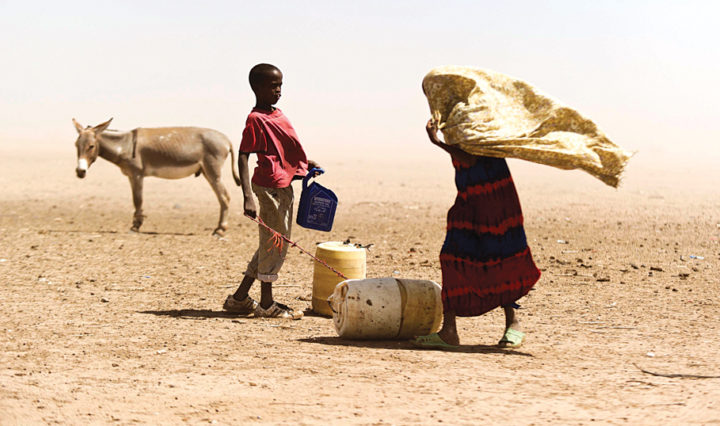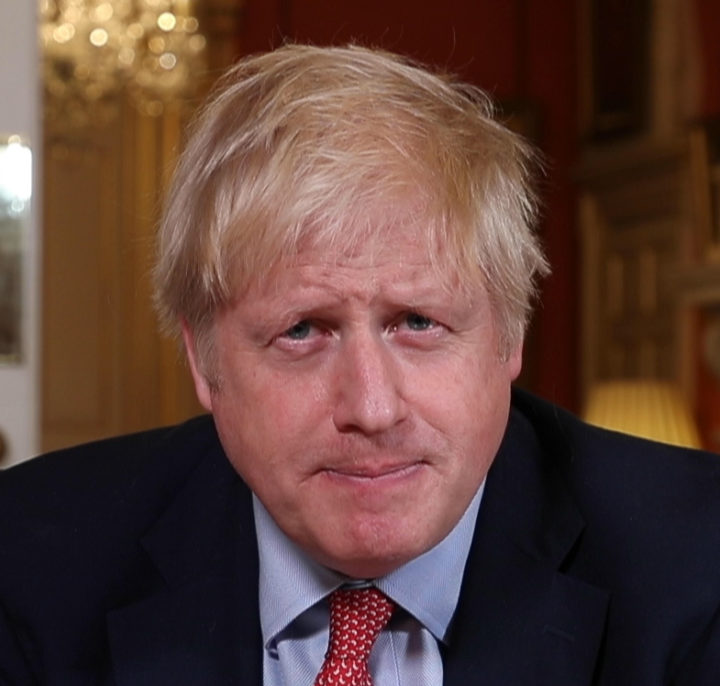Astute diplomacy needed for a successful summit
UK will have to work with EU, China and world's poorest countries to make progress in Glasgow
By Gabrielle Swaby, Researcher and Advisor, Global Climate Policy, Diplomacy and Governance at the International Institute for Environment and Development
Share
Last updated:

This year is crucial for climate action, and for moving past the disappointments of 2019.
The Madrid climate talks, which failed to match the urgency needed to address the climate emergency, must be a lesson, not a template. The lives and livelihoods of millions of women, children and men – many in the poorest, most vulnerable countries – are at stake.
One of the key areas where progress can be made is by governments enhancing their nationally determined contributions (NDCs), the plans that will show how they will rise to the demands of addressing climate change.
This will be an uphill battle in the current geopolitical context because political investment for climate action is sorely lacking from leaders of big polluting countries. The United States and Brazil are backtracking on their climate commitments, China and India are failing to signal their intention to step up action, and we are seeing challenges to reform in Germany and France.

Which is why expectations are high that the EU-China Summit in September will result in a significant joint announcement around climate action from these two big emitters, providing a much-needed signal for others to follow suit.
Although over 100 countries have said they will enhance their NDCs this year, the question looms as to whether it will be enough to get the world on track to keep temperatures below a 1.5°C rise above pre-industrial levels. We cannot afford to go higher.
A joint EU-China announcement – one which commits the two powerhouses to step up their efforts for addressing climate change at home and abroad – would be a welcome push and would give other countries the confidence to step up, especially given the US’s planned withdrawal from the Paris Agreement in November.
Time to defend
Even if countries do improve their plans for action, the carbon emissions that are already locked into the climate system are increasing the frequency and severity of climate change impacts.

This means that vulnerable countries, including the Least Developed Countries, need to see more commitments to help them adapt and build resilience, such as building flood defences and planting drought-resistant crops.
Therefore, to help make the road to Glasgow smoother and the 26th UN climate talks credible, developed countries need to deliver both more and more effective climate finance for developing countries.
This year marks the deadline for developed countries to fulfil the promise they made under the Paris Agreement in 2015 to provide at least US$100 billion a year for supporting developing countries’ climate action.
More ambitious targets for delivering climate finance also need to be reflected in countries’ enhanced NDCs. But positive momentum will only be meaningful if investment and efforts reach the most vulnerable people so they can meet their needs and priorities.
Trade deal
Success at Glasgow will also be determined by whether countries can at last finalise the rules for a post-Kyoto Protocol carbon markets mechanism.

This controversial piece of work has been pushed back since 2018, delayed by a range of obstacles.
These include how to treat carried over credits gained under Kyoto and whether to transfer them under the Paris Agreement or to start anew.
The problem with this is it would mean newly counted carbon cuts would be based on historic emissions rather than current, distorting a country’s actual cuts in their NDCs.
Governments also need to agree that a fair share of the proceeds raised from this mechanism is committed to developing countries, specifically to support them in adapting to the impacts of climate change.
Negotiators need to use this year, particularly the June UN negotiations in Bonn, Germany, to continue designing these rules so they are agreed in time for the UN Glasgow climate summit.
UK needs its allies
The UK government, as the summit’s host, has a tough road ahead as it seeks to re-align the politics for effective climate action. But these key international moments throughout 2020, can help the UK build alliances and re-build trust among countries in order to shift the balance towards stronger climate action.
This year, all countries must respond to the degree and rate of change needed – as demanded by the people who are most vulnerable, echoed by civil society and youth on streets around the world, and backed by the science. These calls must not fall on deaf ears.
Share